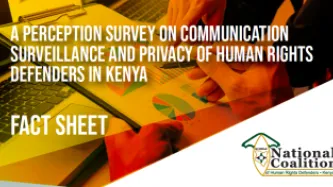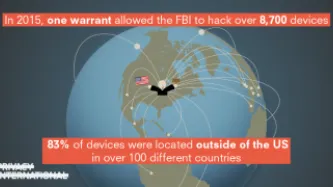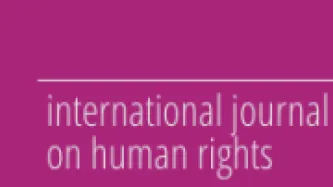Search
Content type: Examples
A combination of entrenched and litigious voting machine manufacturers with immense control over their proprietary software and a highly complex and fragmented voting infrastructure mean that even though concerns were raised as early as 2004 about the security of US voting machines, the 2018 midterm election saw little improvement. The machines in use in the more than 10,000 US election jurisdictions are all either optical-scan or direct-recording electronic (DRE). Optical-scan, which scans…
Content type: Examples
In September 2018, when Massachusetts state police tweeted a map of responses to fires and explosions during a gas emergency, they inadvertently revealed that they were closely monitoring several activist groups, including a Facebook group for Mass Action Against Police Brutality, the Coalition to Organize and Mobilize Boston Against Trump, Facebook 413, Facebook MA Activism, and Resistance Calendar. The image was taken down and cropped after half an hour, but it spurred journalists to ask…
Content type: Examples
In September 2018, Google warned a selection of US senators and their aides that their Gmail accounts were being targeted by foreign government hackers. Google has issued warnings of phishing attempts by state-sponsored actors since 2012, though getting a notice does not mean the account has been compromised.
https://www.cnet.com/news/google-warns-us-senators-of-foreign-hackers-targeting-their-gmail-accounts/
Writer: Richard Nieva
Publication: CNet
Content type: Examples
In the run-up to the 2018 US mid-term elections, researchers found that the dissemination of fake news on Facebook was increasingly a domestic American phenomenon rather than, as in the 2016 presidential election, an effort driven by state-backed Russian operatives. Removing such accounts (Twitter) and pages (Facebook) is tricky in the US, where the boundary between free speech and disinformation is particularly sensitive. In addition, domestic disinformation is harder to distinguish. One of…
Content type: Examples
In the months leading up to the US 2018 midterm elections, Republican officials in Georgia, Texas, and North Carolina made moves they described as ensuring voting integrity but which critics saw as blocking voter access. In Georgia, where Secretary of State Brian Kemp is charged with enforcing election law and was simultaneously running for governor, election officials blocked 53,000 applications to register, 70% of which are those of African-Americans, under a law requiring personal…
Content type: Examples
A few months before the US 2018 midterm elections, the Trump campaign team signed a contract with the newly-formed Virginia-based company Excelsior Strategies to exploit the first-party data the campaign had collected. The contract was set up by Trump's campaign manager, Brad Parscale, who built the list as the digital director of Trump's 2016 campaign and began renting it out soon after the November 2016 elections.
Subject to the Trump's campaign veto authority, Excelsior rents out this…
Content type: Examples
A little over a month before the US 2018 midterm elections, Twitter updated its rules to reduce manipulation of its platform. Among the changes, the company outlined the factors it would use to determine whether an account is fake and should be removed, provided an update on its automated detection and enforcement actions, and announced some changes to its user interface, which included reminding candidates to turn on two-factor authentication and encouraging US voters to register and vote.…
Content type: News & Analysis
Taylor Swift may be tracking you, particularly if you were at her Rose Bowl show in May.
According to an article published by Vanity Fair, at Swift’s concert at the California stadium, fans were drawn to a kiosk where they could watch rehearsal clips. At the same time – and without their knowledge - facial-recognition cameras were scanning them, and the scans were then reportedly sent to a “command post” in Nashville, where they were compared to photos of people who are known…
Content type: Examples
Days before the US November 2018 midterm elections, ProPublica discovered that an organisation called Energy4US spent $20,000 to run ads on Facebook pushing conservatives to support the Trump administration's reversal of fuel emission standards. On closer scrutiny, Energy4US appeared to be a front organisation for the trade association American Fuel and Petrochemical Manufacturers, which numbers the world's largest oil companies among its members. Although Facebook's announced requirement that…
Content type: Examples
In the run-up to the US 2018 mid-term elections, Facebook announced it would broaden the company's policies against voter suppression by banning misrepresentations about how to vote and whether a vote will be counted. The company also introduced a reporting option to allow users to report incorrect information and dedicated reporting channels for state election authorities. The company noted it was getting better at detecting and removing fake accounts and increasing transparency about…
Content type: Advocacy
Consumers benefit from the existence of competitive markets, in which they can freely choose among a wide range of products and services. Competition policy plays an important role in this regard by ensuring that competition is not disrupted in a way that can harm consumers directly (e.g. leading to price increases or less choice) or indirectly (e.g. weakening competition as a process by hampering the ability of firms to compete on the merits).
Content type: Examples
In May 2018, US Immigration and Customs Enforcement abandoned the development of machine learning software intended to mine Facebook, Twitter, and the open Internet to identify terrorists. The software, announced in the summer of 2017, had been a key element of president Donald Trump's "extreme vetting" programme and expected to flag at least 10,000 people a year for investigation. ICE decided instead to opt for a contractor who could provide training, management, and human personnel to do the…
Content type: Report
In December 2018, the National Coalition of Human Rights Defenders-Kenya published a report analysing the needs and concerns of human rights defenders (HRD) in relation to privacy, data protection and communications surveillance.
A summary of their findings is below. Access the full report on their website.
Content type: News & Analysis
Our team wanted to see how data companies that are not used to being in the public spotlight would respond to people exercising their data rights. You have the right under the EU General Data Protection Regulation ("GDPR") to demand that companies operating in the European Union (either because they are based here or target their products or services to individuals in the EU) delete your data within one month. We wrote to seven companies and requested that they delete our data, and we've made…
Content type: Advocacy
Today, Privacy International has filed complaints against seven data brokers (Acxiom, Oracle), ad-tech companies (Criteo, Quantcast, Tapad), and credit referencing agencies (Equifax, Experian) with data protection authorities in France, Ireland, and the UK.
It’s been more than five months since the EU’s General Data Protection Regulation (GDPR) came into effect. Fundamentally, the GDPR strengthens rights of individuals with regard to the protection of their data, imposes more…
Content type: News & Analysis
Image Source
On 10 October 2018, the US Senate Committee on Commerce, Science, and Transportation, will convene a hearing titled “Consumer Data Privacy: Examining Lessons From the European Union’s General Data Protection Regulation and the California Consumer Privacy Act".
The Senate will hear from:
Dr. Andrea Jelinek, Chair, European Data Protection Board
Mr. Alastair Mactaggart, Board Chair, Californians for Consumer Privacy
Ms. Laura Moy, Executive Director and Adjunct…
Content type: Advocacy
In parallel to the legislative process initiated by the Kenya Senate in July 2018, a Task Force constituted by the Ministry of Information, Communication and Telecommunication developed a draft Data Protection Bill which it published for consultation in May of this year.
Privacy International and its Kenya Partners, the National Coalition of Human Rights Defenders – Kenya (NCHRD-K), the Centre for Intellectual Property and Information Technology (CIPIT) are pleased to have had the…
Content type: News & Analysis
This piece was originally published on Just Security.
Ten years ago, an FBI official impersonated an Associated Press reporter to lure and track a teenager suspected of sending in prank bomb threats to his school. To find him, the FBI agent, posing as a reporter, sent the teenager links to a supposed story he was working on, but the links were infested with malware that once clicked on quickly exposed the teen’s location. More recently, the FBI has seized and modified websites so…
Content type: News & Analysis
Creative Commons Photo Credit: Source
Just about everyone in Washington has found something to dislike about the tech industry: Democrats especially, are worried about foreign interference in the 2016 election — meanwhile some Republicans are more concerned about bias against conservatives of platforms and on top of it all President Trump has been tweeting about antitrust and competition.
Privacy International is a vocal critic of data exploitation more generally, and the systemic…
Content type: News & Analysis
Around the world, from North America to Europe and Asia, governments are starting to roll out smart meters. While the technology promises increased energy efficiency through greater consumer control over energy consumption, smart meters also raise serious privacy concerns. Smart meters collect energy usage data at high frequencies - typically every five, fifteen or 30 minutes. That level of granularity reveals how much electricity is being used in a home and when, which in turn can paint an…
Content type: News & Analysis
This piece originally appeared here.
Creative Commons Photo Credit: Source
Tech competition is being used to push a dangerous corporate agenda.
High-tech industries have become the new battlefield as the United States and China clash over tariffs and trade deficits. It’s a new truism that the two countries are locked in a race for dominance in artificial intelligence and that data could drive the outcome.
In this purported race for technological high ground, the argument often goes, China…
Content type: Long Read
Creative Commons Photo Credit: Source
In the midst of continued widespread public outrage at the US government’s brutal ‘zero-tolerance’ policy around immigration – multiple data and analytics companies have quietly avoided answering questions about their role in feeding the US Immigration and Customs Enforcement (ICE) agency’s data backbone. These companies are bidding to work with an agency that has time and time again shown itself to be a brutal and problematic.
Privacy International…
Content type: News & Analysis
Photo was found here
This essay was published in The Sur International Journal of Human Rights, Issue 27, July 2018.
Abstract:
This essay focuses on elections in Kenya and analyses the use of technology and the exploitation of personal data in both the electoral process and campaigning. We only need to look to Kenya’s election history to understand why it is important. The 2007/2008 election resulted in violence that killed over 1,000 people and displaced over 600,000. The 2013 election was…
Content type: Report
Privacy International welcomes the opportunity to file these comments in advance of the Federal Trade Commission’s public hearings on competition and consumer protection in the 21st century.
Content type: Advocacy
This photo originally appeared here.
For years, Privacy International and our partners in Kenya have been promoting the right to privacy in Kenya through research and investigations into government and private sector policies and practices and advocating for the adoption and enforcement of the strongest data protection and privacy safeguards.
The need for Kenya to adopt a comprehensive data protection framework (in addition to strengthening privacy protections in other legislation) has always…
Content type: Report
Countries with powerful security agencies are spending literally billions to equip, finance and train security and surveillance agencies around the world — including authoritarian regimes. This is resulting in entrenched authoritarianism, further facilitation of abuse against people, and diversion of resources from long-term development programmes.
Privacy International's report 'Teach 'em to Phish: State Sponsors of Surveillance' examines this problem closely, providng examples from US, China…
Content type: Long Read
Privacy International (PI) has today released a new report, 'Teach 'em to Phish: State Sponsors of Surveillance', showing how countries with powerful security agencies are training, equipping, and directly financing foreign surveillance agencies.
Spurred by advances in technology, increased surveillance is both powered by and empowering rising authoritarianism globally, as well as attacks on democracy, rights, and the rule of law.
As well as providing a background to the issue, the report…
Content type: Press release
Privacy International has today released a report that looks at how powerful governments are financing, training and equipping countries — including authoritarian regimes — with surveillance capabilities. The report warns that rather than increasing security, this is entrenching authoritarianism.Countries with powerful security agencies are spending literally billions to equip, finance, and train security and surveillance agencies around the world — including authoritarian regimes. This is…
Content type: News & Analysis
As the international cyber security debate searches for new direction, little attention is paid to what is going on in Africa. Stepping over the remains of the UN Group of Governmental Experts, and passing by the boardrooms of Microsoft struggling to deliver their Digital Geneva Convention, African nations are following their own individual paths.
Unfortunately, these paths increasingly prioritise intrusive state surveillance and criminalisation of legitimate expression online as…
Content type: Press release
Gus Hosein, Executive Director of Privacy International:
The US federal government's cruel zero tolerance immigration policy has received widespread and international condemnation. In addition to the policy's clear moral failure it is also in violation of the government's legal obligations under the International Covenant on Civil and Political Rights (ICCPR), which includes protecting families from unnecessary interference by the government.
The US government needs to understand that…



























